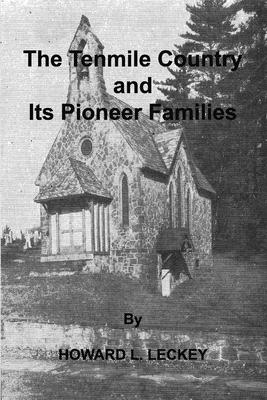"Tenmile Country" refers to an area of land in Greene and Washington counties in southwestern Pennsylvania that is traversed by Tenmile Creek. During the early colonial period, this region of the Upper Monongahela, like that of Fort Duquesne (Pittsburgh) slightly to the north and what would become Morgantown, West Virginia to the south, was inhabited by the indigenous peoples; by French missionaries, trappers, and traders; and eventually by a number of intrepid British "trans-Allegheny pioneers."
After 1750, however, the Tenmile Country--like the Shenandoah Valley of Virginia-- became a desired place of settlement or stopover point for the huge migration of Scotch-Irish, German, and British colonists. Migration to the Monongahela took place over 3 main routes: along the National Pike via Winchester, Virginia; through the Shenandoah Valley to the head of the Cheat River and from there to the Monongahela; and along the Lincoln Highway to Ligonier, Pennsylvania and thence along Jacob's Creek to the Monongahela. The tributaries of the Tenmile Creek were inundated by pioneers--many of them German or Scotch Irish, some of them the spillovers from the great migration into Kentucky, and still other travelers and immigrants who passed through Baltimore en route to one of the great migration trails.
This book was originally published as a series of newspaper articles. The work commences with an historical overview of settlement in Tenmile, and concludes with an index of some 30,000 entries. In between, the genealogist can savor 500 or more family histories, of varying lengths. The sketches touch on more than 2,000 main families.
This book is a reprint of Leckey's massive collection of genealogies pertaining to the 18th-century settlers of Pennsylvania's Monongahela Valley. Originally published in 1950, reprinted by Closson Press in 1993 with a surname index.
